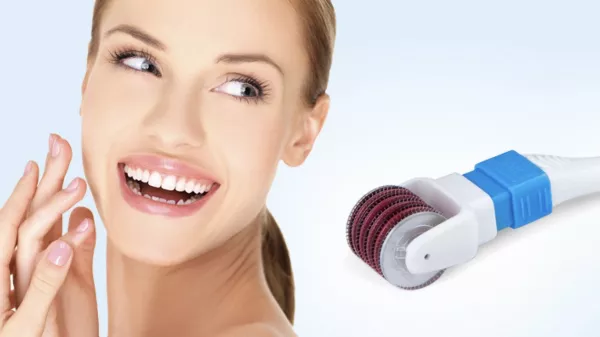All you need to know about excessive sweating
Well, humans are designed to sweat, especially in hot weather. But some of us are prone to excessive sweating that can happen no matter the season we’re in. It is a prevalent ailment that can have as a leading cause both physical and emotional discomfort. Excessive sweating is known as hyperhidrosis, and it can impact 1 in 20 people, no matter the gender. Usually, the onset of excessive sweating is between 18 and 40 years of age, making it one of the most recurrent health conditions on the globe.

What is hyperhidrosis?
Excessive sweating linked to hyperhidrosis usually happens in hands, feet, armpits, or groins due to the sweat glands. There are two types of hyperhidrosis:
· Focal hyperhidrosis occurs in a localized area on the body, such as excessive sweating on the palms;
· Generalized hyperhidrosis affects the entire body.
Also, another classification of hyperhidrosis is done depending on its cause:
· Primary idiopathic hyperhidrosis has no identified cause;
· Secondary hyperhidrosis is a result of several health problems like obesity, menopause, tumors, diabetes, or hyperthyroidism.
What are the symptoms of hyperhidrosis?
Here are several symptoms that can be associated with hyperhidrosis, but each individual might have some or all of such symptoms depending on their body. Hyperhidrosis symptoms might include:
· Wet palms of the hands;
· Wet soles of the feet
· Recurrent sweating;
· Sweating that soaks through clothing;
· uncomfortable skin problems, like bacterial infections;
· body odor.

What are the causes of hyperhidrosis?
Primary hyperhidrosis might be related to the genetic predisposition of an individual. Some research revealed that excessive sweating could be inherited, and it is not a result of extremely sensitive emotional and mental health. Research shows that those who have primary hyperhidrosis have a close relative with this condition.
On the other hand, secondary hyperhidrosis can be a result of several health problems, including:
· spinal cord injury
· alcoholism
· anxiety
· diabetes
· heart disease
· Parkinson’s disease
· Cancer
· Infections such as HIV or tuberculosis
· Medication such as antidepressants, pilocarpine or propranolol
· Drug abuse
Are there any natural remedies for excessive sweating?
Even though excessive sweating cannot be cured, several natural remedies can be used for diminishing its effects. Some of these include:
· Antiperspirants sprays can impact the sweat glands and lead to less sweating. Keep in mind that deodorants do not have similar effects.
· Armpits pads help prevent excessive sweating from staining or going through clothes.
· Cotton and lose clothing are recommended for those that have excessive sweating. Synthetic fibers have the power to worsen the symptoms of this condition, which is why it is best to avoid them.
· Cotton socks can absorb moisture and prevent uncomfortable feelings due to excessive sweating.
But what is the medication prescribe for excessive sweating?
Of course, if natural remedies do not keep at bay the symptoms of excessive sweating, your medical practitioner might refer you to a dermatologist. He or she might recommend the appropriate medication that will aid you in managing the symptoms. The most common treatments for hyperhidrosis are:
· The anticholinergic medication prevents the transmission of nerve signals that prompt the sweat glands to produce excess sweat. Some studies show that after two weeks of treatment with this drug, patients experience less sweat.
· Botox injections can block the nerves that activate the sweat glands, still, for the best results, several injections might be required.
· Endoscopic thoracic sympathectomy is the ultimate remedy for severe hyperhidrosis. It is the last resort solution for patients that do not respond to natural remedies or medication for excessive sweating. ETS means that the nerves responsible for sweat glands signals are removed from the body.

Do you need to treat excessive sweating?
Still, if you are wondering whether or not you need treatment for hyperhidrosis, you should know that not treating this condition can lead to several complications and health problems. The most common side effects of untreated hyperhidrodsis are:
· Nail infections;
· Skin warts;
· Bacterial infections;
· Heat rash due to blocked sweat ducts and perspiration trapped under the skin;
· Psychological distress, like excessive sweating, can impact self-confidence and relationships. Research shows that those suffering from excessive sweating are prone to developing anxiety, depression, or emotional stress.
Overall, doctors say that patients with excessive sweating do not seek immediate medical help. In some cases, a patient asks for professional help after he or she had lived with this condition for several years. Therefore, if you feel like there is a problem with how your body produces sweat , it is always best to ask your medical practitioner for advice. The symptoms of excessive sweating can be notably diminished if dealt with as soon as they appear.
, it is always best to ask your medical practitioner for advice. The symptoms of excessive sweating can be notably diminished if dealt with as soon as they appear.
updates?



.jpg.webp)






0